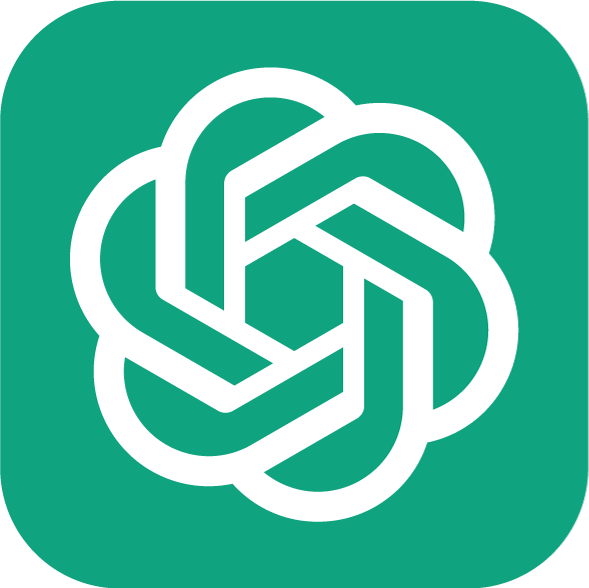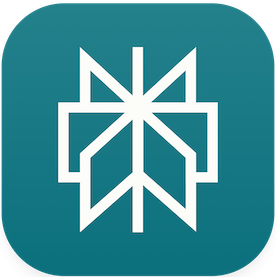

5 Best SSO Tools in 2025

5 Best SSO Tools in 2025
Explore the most robust and user-friendly single sign-on (SSO) tools to ensure secure and seamless access to all applications and services across your organizat


Are you tired of watching your employees struggle with managing multiple login credentials for different applications?
Do you cringe at the thought of yet another password-related support ticket landing in your IT team's inbox? You know that this constant battle with passwords is affecting your team's productivity and diverting valuable resources from more strategic initiatives.
To solve these issues at a fundamental level, you need a Single Sign-On (SSO) tool that can streamline user authentication, enhance security, and improve overall productivity.
In this post, you'll explore some of the best SSO tools on the market and what they have to offer:
What is an SSO software?
Single Sign-On (SSO) is a software solution that simplifies access to multiple applications. With SSO, users log in once to a central portal and gain automatic access to all their permitted applications. You don’t have to remember separate usernames and passwords for each app.
Here's how it works: An employee logs in to the SSO portal and is instantly authenticated. They can then access all their applications without further logins. SSO allows your team to move smoothly between apps, focusing on work, not passwords.
But SSO is more than just convenience; it's a much-needed security tool. It centralizes access control, allowing you to set strong password policies, monitor user activity, and swiftly revoke access when needed. You can rest assured that your company's data is secure while your employees enjoy the simplicity of SSO.
Pros and Cons of Evaluating The Right SSO Software
Pros:
- Centralized control over application access
- Enforce strong, complex password policies across all apps
- Quickly revoke access to all apps if needed
- Employees can switch between apps easily, without repeated logins
- Improves user satisfaction and adoption of new tools
- Minimizes password-related support tickets, freeing up IT resources
Cons:
- Implementing SSO requires careful planning and coordination across all apps and systems
- If the SSO system fails or is breached, access to all connected apps is affected
- Employees won't be able to log in to any tools if SSO is down, potentially halting work
Key Factors to Consider to Choose the Best SSO Tool in 2025
1. Integration with legacy systems
- Can the SSO tool integrate with your older, custom-built apps without extensive customization?
- How much development will be needed, and how will it impact your IT team's workload and timeline?
- Are there potential compatibility issues or limitations?
- What support and resources does the SSO vendor offer during integration?
2. User directory compatibility
- Is the SSO tool fully compatible with your user directory setup (e.g., Active Directory, LDAP)?
- Can it handle complex user hierarchies, group memberships, and attribute mappings without manual effort?
- How does the SSO solution synchronize user data with your directory, and how often?
- What level of control and customization does the SSO tool offer for directory integration?
- Are there known limitations or performance issues when integrating at scale?
3. Conditional access policies
- Can you define and enforce granular, risk-based access rules?
- How easy is it to create, modify, and maintain access policies?
- Does the vendor provide predefined policy templates or best practices?
- Can the SSO tool integrate with other security solutions (e.g., SIEM, MDM) for context-aware access decisions?
4. Mobile SSO and offline access
- Does the SSO solution provide secure offline token storage and access to apps when users are offline?
- Can it enforce device-specific policies, like requiring encryption or blocking jailbroken devices?
- How seamless is the mobile SSO experience, and does it support popular mobile platforms?
- Are there limitations or additional costs for mobile SSO functionality?
5. Multi-factor authentication (MFA)
- What MFA methods does the SSO tool support (e.g., hardware tokens, biometrics, push notifications)?
- How user-friendly and secure are the supported MFA methods?
- Can you customize the MFA experience based on user roles, device types, or app sensitivity?
- Does the solution allow for adaptive or risk-based MFA, triggering additional authentication steps when necessary?
- How does the SSO tool handle MFA enrollment, provisioning, and management?
6. Centralized identity and access management (IAM)
- Does the SSO solution offer a centralized platform for managing user identities, permissions, and access across your entire organization?
- Can you easily provision, modify, and de-provision user accounts and access rights from a single console?
- Does the tool provide role-based access control (RBAC) capabilities for granular permissions based on user roles or hierarchy?
Top 5 tools for SSO in 2025
- Jumpcloud

JumpCloud is a cloud-based directory-as-a-service (DaaS) platform that provides centralized identity and access management (IAM) capabilities.
Features:
— JumpCloud offers a cloud-hosted directory that can serve as a unified identity provider, managing user accounts, groups, and policies across Windows, macOS, and Linux systems.
— The SSO functionality allows users to access a wide range of cloud-based applications with a single set of credentials.
— JumpCloud supports various MFA methods, including push notifications, SMS, and TOTP, to add an extra layer of security to user logins.
— Supports device management capabilities, including remote management, policy enforcement, and software deployment.
Best SSO tools Jumplcloud Reviews
4.5 star rating with 2,306 reviews on g2
“I like the SSO part of Jumpcloud where I can use my multiple applications with a single ID & password”

“Initial setup can be a bit daunting, but customer support is helpful”

Pricing: Starts from $11 /user/mo billed annually. 30-day free trial available
- Okta

Okta is a leading cloud-based identity and access management (IAM) platform that provides secure access to applications, devices, and services.
Key Features:
— Okta has a vast ecosystem of pre-built integrations with thousands of cloud-based and on-premises applications, making it easier to connect to the tools your organization already uses.
— Okta's security features, such as advanced threat detection, adaptive authentication, and integration with security information and event management (SIEM) tools suit best to large enterprises with stringent security requirements.
— It has comprehensive identity governance capabilities, including access reviews, certification campaigns, and segregation of duties, which help organizations maintain tighter control over user access.
Best SSO tools Okta Reviews
4.5 star rating with 758 reviews on g2
“I love Okta not just because of its high standard security level, but also because Okta has a feature where all of the apps and all of the tools that were implemented by our company where I work with, were gathered all together.”

“The app can be a pain to get authentication to work, it also times out very quickly so sometimes you are stuck in a loop trying to get logged in.”

Pricing: Starts from $2 /per user/month. 30-day free trial included.
- Google Workspace

Google Workspace (formerly G Suite) offers a built-in Single Sign-On (SSO) solution as part of its suite of productivity and collaboration tools. Here's a closer look at the features, pros, and cons of Google Workspace SSO:
Key Features:
— The Google Workspace SSO functionality is tightly integrated with the overall Google Workspace ecosystem, providing a seamless sign-in experience across the suite of applications, including Gmail, Google Drive, Google Calendar, and more.
— It allows administrators to centrally manage user accounts, groups, and access permissions through the Google Admin console.
— Google Workspace SSO supports various multi-factor authentication methods, such as SMS, voice calls, and Google Authenticator, to enhance security.
Best SSO tools Google Workspace Reviews
4.6 star rating with 42,387 reviews on g2
“We've had minimal downtime if at all over the last 7 years that we've been using the Google Workspace.”

“Some downsides include limited offline capabilities and privacy concerns so switching to alternative platforms can be challenging.”

Pricing: Starts from $6 per user/month, 1 year commitment. 14-day trial period available.
- OneLogin

OneLogin is a comprehensive cloud-based identity and access management (IAM) solution that includes a robust Single Sign-On (SSO) functionality.
Key Features:
— OneLogin's risk-based adaptive MFA enhances security by intelligently triggering additional authentication factors based on user behavior and access patterns, providing a frictionless user experience.
— It has reporting and audit trail features that provide detailed visibility into user activities, access patterns, and access certification, simplifying compliance efforts and reducing audit-related risks.
Best SSO tool OneLogin Reviews
4.4 star rating with 273 reviews on g2
“It seamlessly integrates with all applications and is very easy to use. Security is key since it allows you to have multiple authentication factors which are very easy to implement.”

“The support team does like to take its time to address your queries. Slightly fewer features compared to market leaders like OKTA. Onelogin protect app for MFA is buggy sometimes.”

Pricing: Starts from $2 / per user/month. 30-day free trial included.
- Microsoft Azure AD

Microsoft Azure Active Directory (Azure AD) is a comprehensive cloud-based identity and access management solution that provides Single Sign-On (SSO) capabilities as part of its feature set. Here's an overview of Azure AD SSO, including its features, pros, and cons:
Key Features:
— Azure AD SSO enables users to access multiple applications with a single set of credentials, providing a seamless and efficient user experience.
— Supports SSO integration with a wide range of Microsoft and third-party applications, both cloud-based and on-premises.
— It allows you to define and enforce granular access policies based on factors such as user identity, device health, location, and real-time risk assessment.
Best SSO tool OneLogin Reviews
4.5 star rating with 29 reviews on g2
“We were looking for a tool where we can manage user and admin level access centrally and our search ends at AAD.”

“Azure Active Directory policies can take some time to sync with users' computers when group policy is changed”

Pricing: $6.00/ per user/month. Free Plan available
Choose your Best SSO tool and Integrate With Spendflo
At the end of the day, the best SSO tool for your organization in 2025 will be the one that strikes the right balance between functionality, security, user experience, and cost-effectiveness while aligning with your overall IAM strategy. Once you've chosen the perfect SSO tool, you can take your SaaS management to the next level by integrating it with Spendflo. Spendflo seamlessly integrates with the best SSO tools, allowing you to centralize and streamline your SaaS buying and management process.
Integrate your favorite SSO tool with Spendflo now










.png)




.png)










.avif)





